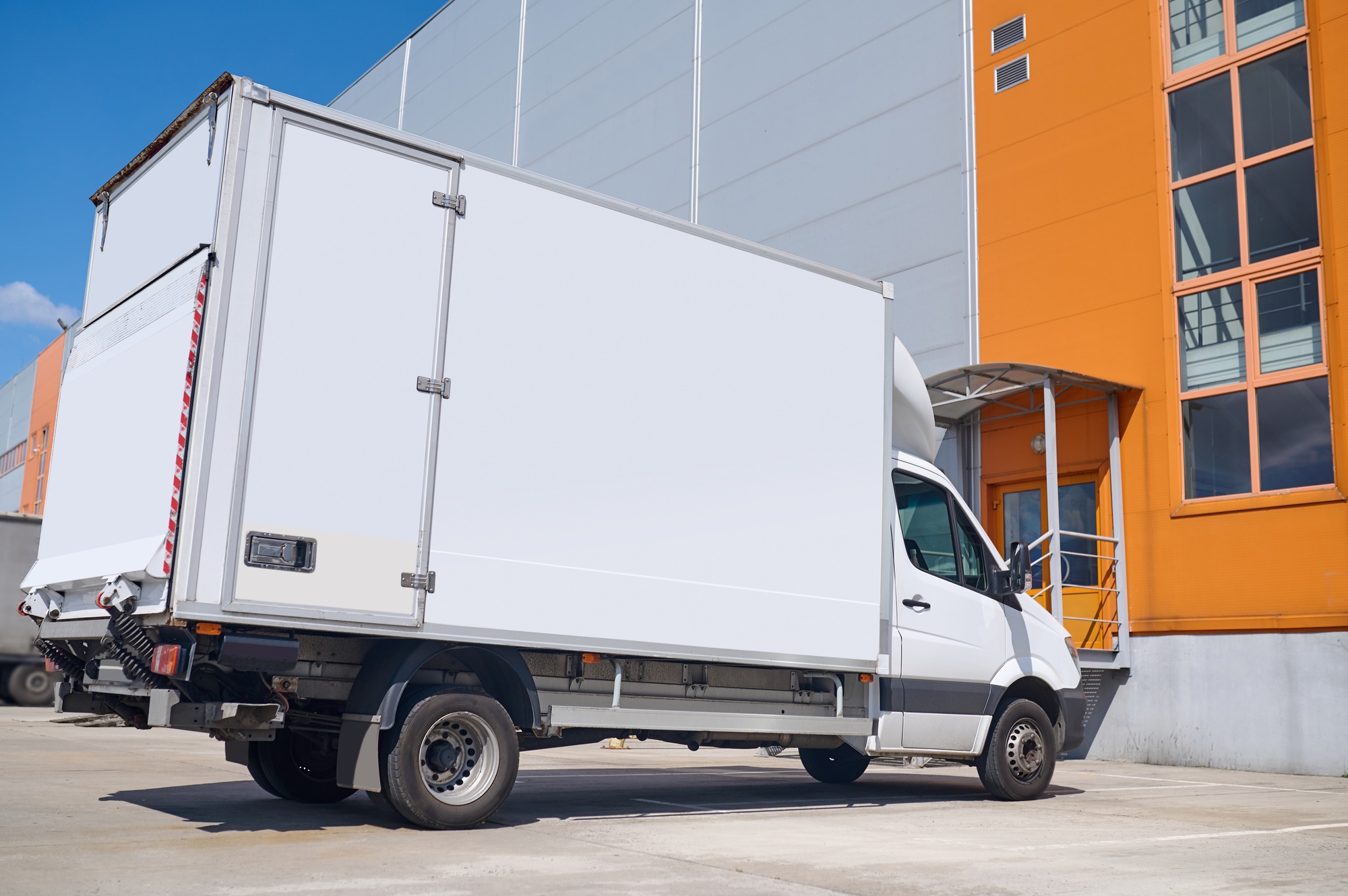Key Takeaways

- Understand the Lorry Industry: Recognize the significance of logistics in global trade, driven by increased demand due to e-commerce and globalization.
- Identify Your Niche: Explore various lorry business types, including local transport, long-haul services, specialized transport, and freight brokerage to effectively position your startup.
- Conduct Comprehensive Market Research: Analyze the market landscape and customer needs to identify opportunities and develop strategies for your lorry business.
- Create a Robust Business Plan: Outline your operations, market analysis, services offered, and financial projections to guide your startup and attract potential investors.
- Fulfill Legal Requirements: Ensure compliance with licenses, permits, and insurance needs for safe and legal operations in the lorry business.
- Plan Your Financing: Calculate startup costs accurately and explore relevant funding options, such as SBA loans and equipment finance, to support your business launch.
Starting a lorry business can be a lucrative venture if you know the right steps to take. With the demand for transportation services skyrocketing, now’s the perfect time to dive into the logistics industry. Whether you’re looking to transport goods locally or expand into long-haul services, understanding the fundamentals is key to your success.
Understanding the Lorry Business

The lorry business presents significant opportunities for small business owners. Understanding the industry’s dynamics and various types of operations can ensure you’re well-prepared for success.
Overview of the Industry
The logistics and transportation industry is a vital component of global trade, with lorry services playing a key role in moving goods. The demand for lorry transportation has increased due to e-commerce growth and globalization. As a small business startup in this field, you’ll face competition but can also tap into niche markets, such as local deliveries or specialized transport services. Researching regulatory requirements and market trends strengthens your position in this expanding industry.
Types of Lorry Businesses
Different types of lorry businesses cater to various market needs. Consider these options:
- Local Transport Services: Focuses on short-distance deliveries within a city or region, serving retailers and businesses with regular shipments.
- Long-Haul Transport: Involves transporting goods across long distances, essential for connecting producers with markets.
- Specialized Transport: Focuses on transporting specific types of goods, such as hazardous materials, refrigerated items, or oversized loads.
- Freight Brokerage: Acts as an intermediary between lorry drivers and shippers, organizing shipments and managing logistics for both parties.
By identifying your niche and understanding these types, you position your small business effectively within the lorry industry.
Planning Your Lorry Business

Planning plays a vital role in starting your lorry business. This section covers essential steps, including market research and creating a business plan to set a solid foundation.
Market Research and Analysis
Conduct thorough market research to understand the current logistics landscape. Analyze local transport needs, customer preferences, and competitor operations. Gather data on market demand, pricing strategies, and service gaps. Identify your target audience, including retailers, manufacturers, and e-commerce businesses. Establish how your startup can fulfill unmet needs or enhance existing services.
Creating a Business Plan
Draft a comprehensive business plan that outlines your goals, operations, and financial projections. Include the following sections:
- Operations: Detail your prospective operations, staff requirements, technology, and vehicle systems.
- Market Analysis: Provide insights into current market conditions and how you’ll adapt your services to meet them.
- Services Offered: Survey the types of services your lorry business will provide, ensuring they align with market demands.
- Financial Projections: Present 3-5 year growth projections, including estimates for revenue, expenses, and profitability.
A well-structured business plan serves as a roadmap, guiding your small business through startup phases and building investor confidence.
Legal Requirements for Starting a Lorry Business

Starting a lorry business entails fulfilling specific legal requirements to operate legally and safely. Compliance with regulations protects your investment and influences your startup’s success.
Licenses and Permits
You’ll require several licenses and permits to start a lorry business. First, register your business entity, such as a sole proprietorship, LLC, or corporation, with your state’s secretary of state office. This registration legitimizes your operations and offers limited liability protection with an LLC or corporation.
Next, obtain a Federal Employment Identification Number (EIN) from the IRS for tax purposes. Additionally, if your operations involve interstate cargo transport or the hauling of hazardous materials, register with the Federal Motor Carrier Safety Administration (FMCSA) to receive a U.S. Department of Transportation (USDOT) number. This number is mandatory for trucks operating across state lines and ensures adherence to safety standards.
Insurance Needs
Insurance coverage is crucial for protecting your lorry business. Basic types include liability insurance, which covers damages and injuries caused by your vehicles, and cargo insurance, protecting goods you transport. Consider obtaining comprehensive and collision coverage for your lorries to shield against accidents and repairs.
In some cases, you may need additional types of insurance, such as workers’ compensation if you employ drivers. Regularly review your insurance policies to ensure adequate coverage for your business’s growth and changing regulatory landscape.
Financing Your Lorry Business

Financing plays a pivotal role when you start your lorry business. Understanding your startup costs and exploring funding options ensures a solid financial foundation.
Startup Costs
Startup costs for a lorry business encompass several key areas. These costs typically include purchasing or leasing vehicles, securing necessary permits and licenses, obtaining insurance, and acquiring equipment such as GPS systems and communication devices. You can expect initial costs to range between $15,000 to $200,000, depending on whether you pursue a local transport operation or a long-haul service. Additional expenses may arise from hiring drivers and purchasing fuel. It’s essential to outline all costs in your business plan, as this clarity helps manage finances effectively.
Funding Options
You can access various funding options to support your lorry business.
- SBA Loans: The Small Business Administration (SBA) offers loans with high totals and low interest rates, making them attractive for startups. However, securing these loans often requires a good credit score and an established credit history.
- Equipment Finance Loans: These loans cover up to 100% of your equipment costs and typically pose less difficulty in securing than SBA loans. However, your truck becomes collateral for these loans.
By identifying the right funding option, you can ensure you’re equipped to cover startup costs and support your business.
Conclusion

Starting a lorry business can be a rewarding venture if you approach it with the right strategy. By understanding the market dynamics and identifying your niche, you can position yourself for success in this growing industry.
Thorough planning and compliance with legal requirements are essential to navigate challenges effectively. Securing adequate financing will help you cover startup costs and set a solid foundation for your operations.
Stay informed about industry trends and continuously adapt your strategies to meet customer needs. With dedication and the right resources, you can build a thriving lorry business that meets the demands of today’s logistics landscape.
Frequently Asked Questions

What is a lorry business?
A lorry business involves providing transportation services using large vehicles for freight and goods. It serves various sectors, including local delivery, long-haul transport, and specialized transport services.
How profitable is a lorry business?
The profitability of a lorry business can vary based on factors like market demand, operational efficiency, and expenses. With the right planning and niche, it can be a lucrative venture due to the growing need for transportation services.
What are the key steps to starting a lorry business?
Key steps include conducting market research, identifying your target audience, creating a detailed business plan, obtaining necessary licenses and permits, securing insurance, and identifying financing options.
What licenses do I need to start a lorry business?
Typically, you will need a business registration, a Federal Employment Identification Number (EIN), and a U.S. Department of Transportation (USDOT) number for interstate operations. Specific requirements can vary by state.
How much capital is required to start a lorry business?
Startup costs for a lorry business can range from $15,000 to $200,000. This depends on the type of operation, including vehicle purchases, permits, insurance, and equipment.
What types of lorry businesses are there?
Types of lorry businesses include local transport services, long-haul transport, specialized transport (like hazardous materials), and freight brokerage, each catering to different market needs.
How can I finance my lorry business?
Financing options include SBA loans, which require good credit, and equipment finance loans that use the truck as collateral. It’s crucial to choose funding that suits your financial situation and business model.
Why is market research important for a lorry business?
Market research helps entrepreneurs understand logistics trends, identify customer needs, and analyze competitors. This information is essential for making informed decisions and enhancing business success.
Image Via Envato



